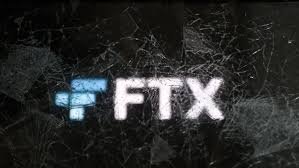The cryptocurrency world was rocked on Thursday as a U.S. court ordered the bankrupt exchange FTX to pay an astonishing $12.7 billion in relief to its customers. This ruling follows the fallout from one of the most significant financial frauds in the industry’s history, orchestrated by FTX’s founder, Sam Bankman-Fried.
In March, Bankman-Fried was sentenced to 25 years in prison after being convicted of stealing $8 billion from FTX’s customers. The court’s latest ruling demands that FTX pay $8.7 billion in restitution, alongside $4 billion in disgorgement. These payments are intended to compensate victims for the massive losses they suffered due to the fraudulent activities that led to the exchange’s collapse in late 2022.
The collapse of FTX marked a critical turning point for the cryptocurrency sector. As one of the most well-known exchanges, its sudden downfall sent shockwaves through the industry, leading to significant financial losses for investors. The exchange’s bankruptcy left many customers unable to access their funds, prompting widespread panic and raising questions about the safety and security of digital asset investments.
FTX has since committed to a bankruptcy liquidation plan, promising to repay customers based on the value of their accounts at the time the company filed for bankruptcy. This commitment aims to provide full recovery for affected customers, a process that has been complicated by ongoing legal battles and the need for regulatory oversight.
The Commodity Futures Trading Commission (CFTC) played a key role in this latest development, ensuring that the government’s lawsuit against FTX would not further deplete the funds available to compensate customers. The CFTC’s agreement with FTX is a crucial step in resolving the legal complexities surrounding the case, allowing the bankruptcy process to move forward more efficiently.
The $12.7 billion payout ordered by the court is one of the largest financial penalties ever imposed in the cryptocurrency industry. This enormous sum reflects the scale of the fraud and the devastating impact it had on the exchange’s customers. The funds from the restitution and disgorgement will be used to compensate victims, many of whom lost significant portions of their wealth in the collapse.
For the cryptocurrency community, the FTX case serves as a stark reminder of the risks associated with investing in digital assets. The case has sparked widespread debate about the need for greater regulation and oversight in the industry. As regulators around the world take a closer look at cryptocurrency exchanges, the outcome of the FTX case could set important precedents for how future cases are handled.
The legal challenges faced by FTX are far from over. While the court’s ruling is a significant step towards providing justice for the victims, the process of distributing the funds is likely to be lengthy and complex. Many questions remain about how the funds will be allocated and whether all affected customers will receive full compensation.
The collapse of FTX has already led to increased scrutiny of the cryptocurrency industry, with calls for more stringent regulations to prevent similar incidents in the future. The outcome of this case will be closely watched by investors, regulators, and industry leaders alike, as it may shape the future of cryptocurrency trading and regulation.
As the legal proceedings continue, the focus will remain on how quickly and effectively the $12.7 billion can be distributed to the victims. The FTX case has already had a profound impact on the cryptocurrency industry, and its resolution will be a key factor in determining the future of digital asset trading.
